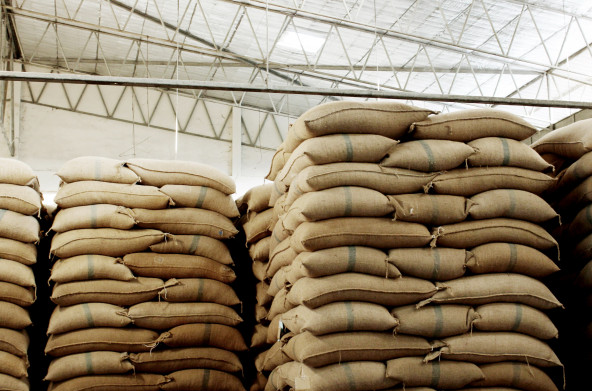The Central Bank of Nigeria (CBN) says the country spends $2 billion annually on the importation of wheat.
Yila Yusuf, director of CBN development finance department, disclosed this in Abuja, at the wheat conference and stakeholder engagement, with the theme ‘Improving and Sustaining the Wheat Value Chain Development in Nigeria’.
He highlighted the enormous potential of the wheat value chain for ground-breaking impact in the agricultural sector.
Yusuf said the CBN sought to focus attention on the wheat value chain for 2021/2022 dry season planting after sustainable progress across the rice and maize value chains.
Advertisement
“The CBN plans to address key problems in the value chain through financing massive production of wheat in Nigeria and seeks to facilitate sustained availability of high yield seed variety in country and improve general productivity,” he said.
He said that wheat was the second highest contributor to the country’s food import bill, putting pressure on the country’s foreign reserve as over $2bn was spent annually on the importation of over five million metric tonnes (MT) of wheat.
Yusuf further estimated that only one percent or 63,000MT of wheat, out of the five to six million metric tonnes of wheat consumed annually, was produced locally.
Advertisement
He explained that the CBN intervention had become critical due to the high demand for wheat in Nigeria and the inability to meet that demand.
Also speaking at the event, Mohammed Abubakar, the minister of agriculture and rural development, expressed dismay that the country’s wheat importation and wheat import bills had continued to increase in recent years.
He urged all stakeholders to collaborate to reverse the trend as the years go by investing more in the value chain, making more investment.
On his part, Abdullahi Ganduje, governor of Kano, charged stakeholders in the wheat value chain to be transparent in their dealings and to commence preparation for both farming and production of wheat.
Advertisement
The governor commended the CBN’s efforts in boosting the commodity value chain and encouraged the bank to expedite action in releasing funds.
Ganduje, who was represented by his deputy, Nasiru Gawuna, emphasised that partnership among stakeholders in wheat production value chains remained critical in boosting the country’s quest to be self-sufficient in the production of wheat.
In March, Godwin Emefiele, CBN governor, had said the bank was working to increase local wheat production and reduce importation by 60 percent.
Advertisement
Add a comment






